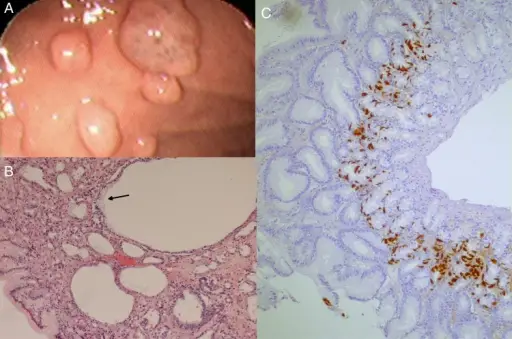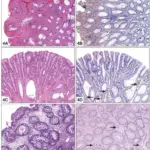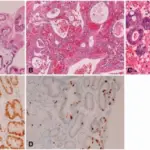Fundic gland polyps are the most common stomach polyp. They occur in the fundus, or the upper portion of the stomach. When they are found during an endoscopy, there are usually several of them, and they appear as small, smooth flat bumps. These polyps rarely develop into cancer.
What is the Pathology of Fundic Gland Polyps?
The pathology of fundic gland polyps is:
-Etiology: The cause of fundic gland polyps is chronic stomach inflammation.
-Genes involved: Beta-catenin gene mutation.
-Pathogenesis: The sequence of events that lead to fundic gland polyps are poorly understood. These lesions have usually been considered hamartomas, although up to 25% of FAP-associated fundic gland polyps and 1% of sporadic types are now known to show foveolar epithelial dysplasia, which is often proceeded by dysregulation of epithelial proliferation.
-Histology: The histology associated with fundic gland polyps shows larger size of dilated fundic gland cysts, larger number of foveolar and mixture type fundic gland cysts, foveolar cell hyperplasia, parietal cell protrusion, mononuclear cell infiltration.
How does Fundic Gland Polyps Present?
Patients with fundic gland polyps typically both genders at any age. The symptoms, features, and clinical findings associated with fundic gland polyps are not usually reported. They are usually found when a patient is being examined for another stomach issue. Larger polyps may cause internal bleeding or abdominal pain.
How is Fundic Gland Polyps Diagnosed?
Fundic gland polyps is diagnosed by endoscopy and biopsy.
How is Fundic Gland Polyps Treated?
Fundic gland polyps is treated by discontinuing proton pump inhibitors or removing the polyp or both.
What is the Prognosis of Fundic Gland Polyps?
The prognosis of fundic gland polyps is good.



